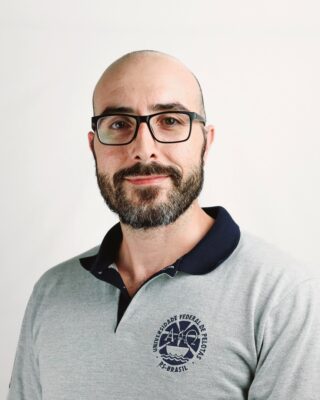IEEE SPS SCV - Complexity-Aware Visual Signal Coding: Learning-Based Approaches for Energy Efficiency
Visual signal coding involves a great number of complex and computationally intensive decisions, especially in modern standards such as Versatile Video Coding (VVC), AOMedia Video 1 (AV1), and Video-based Point Cloud Compression (V-PCC). As multimedia applications increasingly target energy-constrained devices, reducing the computational and energy demands of coding systems becomes crucial. In this talk, we present how machine learning techniques can be applied to accelerate decision processes and significantly reduce complexity in these advanced coding standards. The talk will present examples in which trained models are implemented into both software codecs and hardware designs, and demonstrate how they can be combined with low-power techniques such as operand isolation, clock gating, and approximate computing. The presented approaches aim to enable efficient multimedia processing even under strict energy limitations.
Date and Time
Location
Hosts
Registration
-
 Add Event to Calendar
Add Event to Calendar
Speakers
Guilherme Corrêa of Universidade Federal de Pelotas (UFPel)
Complexity-Aware Visual Signal Coding: Learning-Based Approaches for Energy Efficiency
Visual signal coding involves a great number of complex and computationally intensive decisions, especially in modern standards such as Versatile Video Coding (VVC), AOMedia Video 1 (AV1), and Video-based Point Cloud Compression (V-PCC). As multimedia applications increasingly target energy-constrained devices, reducing the computational and energy demands of coding systems becomes crucial. In this talk, we present how machine learning techniques can be applied to accelerate decision processes and significantly reduce complexity in these advanced coding standards. The talk will present examples in which trained models are implemented into both software codecs and hardware designs, and demonstrate how they can be combined with low-power techniques such as operand isolation, clock gating, and approximate computing. The presented approaches aim to enable efficient multimedia processing even under strict energy limitations.
Biography:
Prof. Guilherme Corrêa received the Ph.D. degree in Electrical and Computer Engineering from the University of Coimbra, Portugal, in 2015, the M.Sc. degree in Computer Science from the Federal University of Rio Grande do Sul, Brazil, in 2010, and the B.Sc. degree in Computer Science from the Federal University of Pelotas, Brazil, in 2009. He is a professor with the Technology Development Center (CDTec) at the Federal University of Pelotas (UFPel), Brazil. He is also a Senior Member of the IEEE and an active member of the IEEE Signal Processing Society, the IEEE Circuits and Systems Society, the Brazilian Computer Society (SBC), and the Brazilian Microelectronics Society (SBMicro). Prof. Guilherme is affiliated with the Video Technology Research Group (ViTech) and has more than 15 years of experience in the field of visual signal processing. His work focuses primarily on developing low-complexity and energy-efficient solutions for video coding. He is the author of over 100 scientific publications, as well as one book on complexity-aware video coding. His main research interests include visual signal processing, video coding algorithms and standards, machine learning and deep learning for multimedia applications, and energy-efficient hardware design and computing systems.
Address:Pelotas, Brazil

